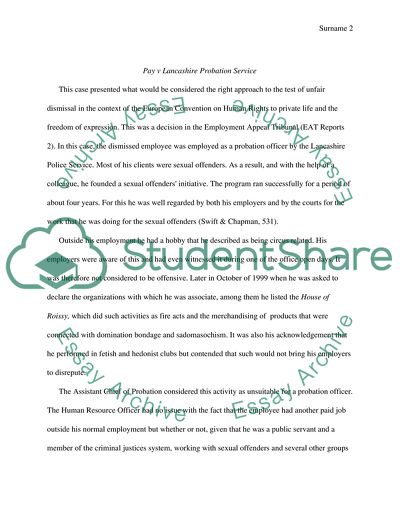Cite this document
(Considering Pay v Lancashire Probation Service and X v Y Cases Research Paper - 1, n.d.)
Considering Pay v Lancashire Probation Service and X v Y Cases Research Paper - 1. Retrieved from https://studentshare.org/law/1751951-despite-cases-such-as-pay-v-lancashire-probation-service-and-x-v-y-private-life-should-mean-what-it-says-critically-assess-this-statement
Considering Pay v Lancashire Probation Service and X v Y Cases Research Paper - 1. Retrieved from https://studentshare.org/law/1751951-despite-cases-such-as-pay-v-lancashire-probation-service-and-x-v-y-private-life-should-mean-what-it-says-critically-assess-this-statement
(Considering Pay V Lancashire Probation Service and X V Y Cases Research Paper - 1)
Considering Pay V Lancashire Probation Service and X V Y Cases Research Paper - 1. https://studentshare.org/law/1751951-despite-cases-such-as-pay-v-lancashire-probation-service-and-x-v-y-private-life-should-mean-what-it-says-critically-assess-this-statement.
Considering Pay V Lancashire Probation Service and X V Y Cases Research Paper - 1. https://studentshare.org/law/1751951-despite-cases-such-as-pay-v-lancashire-probation-service-and-x-v-y-private-life-should-mean-what-it-says-critically-assess-this-statement.
“Considering Pay V Lancashire Probation Service and X V Y Cases Research Paper - 1”, n.d. https://studentshare.org/law/1751951-despite-cases-such-as-pay-v-lancashire-probation-service-and-x-v-y-private-life-should-mean-what-it-says-critically-assess-this-statement.


